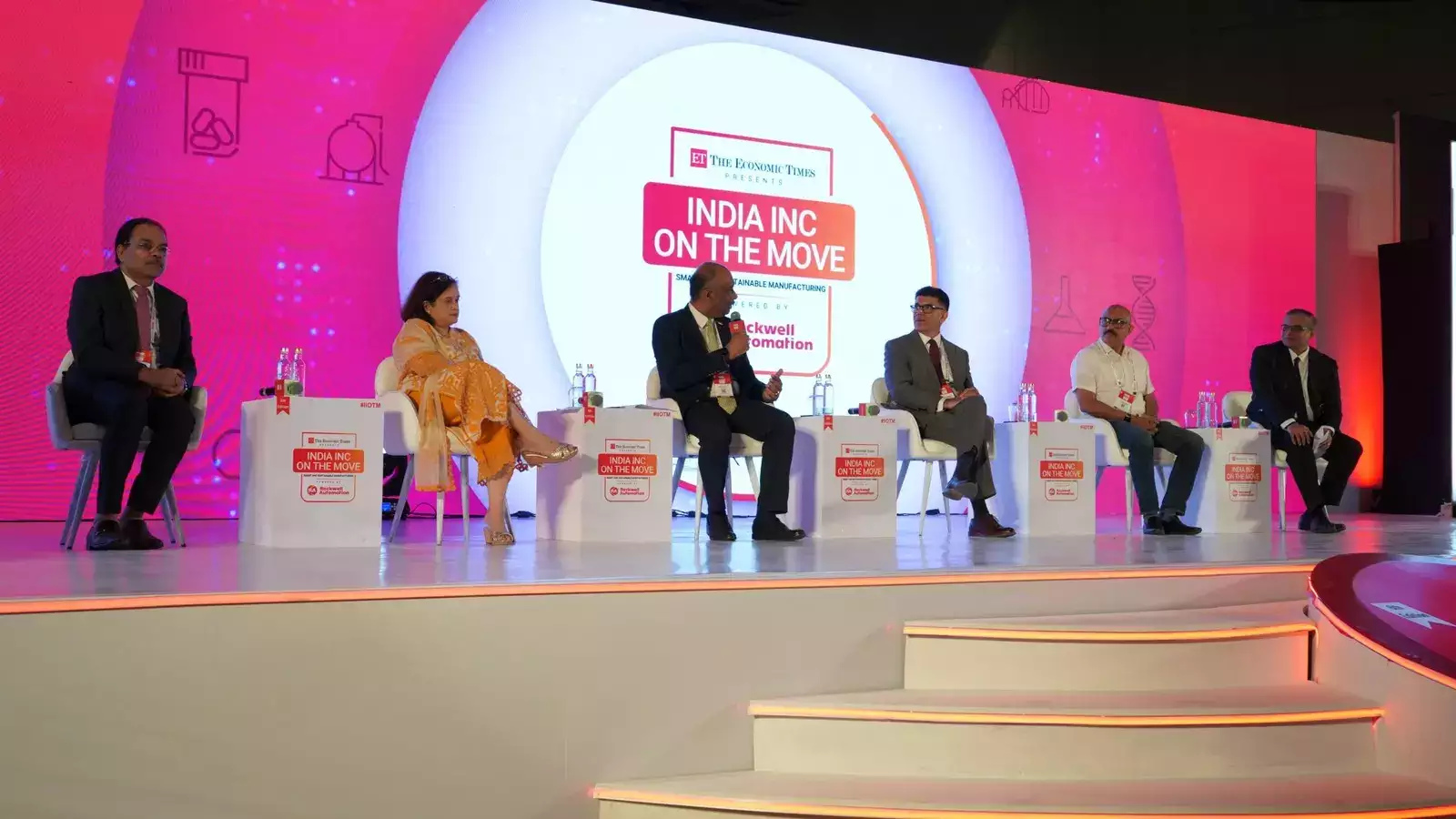IIOTM 2025: India's path to smart manufacturing to be backed by big ideas, bold R&D and power of technology

Debjani Ghosh, Distinguished Fellow at NITI Aayog, set the tone, highlighting that India’s manufacturing sector must think big to make a significant impact. "We need big thinking," she said, stressing that the country’s target of raising manufacturing output from 15% to 25% of GDP requires a comprehensive reimagining of how the sector operates.
While acknowledging the importance of technology, Ghosh cautioned that technology is merely a 'supporting cast' in this transformation. "Our capabilities, data utilisation, and R&D are the main characters here," she asserted, underlining that these elements are pivotal in driving the necessary disruption.
The discussion turned towards India's capabilities in adopting technology and the gaps in utilising data effectively. Ghosh pointed out that while India has abundant data, it is often siloed and of poor quality, making it difficult to harness its full potential.
"We need to build a centralised architecture to unlock data's potential," she said. Furthermore, she pushed for a more ambitious approach to R&D, encouraging a shift from incremental innovation to truly disruptive breakthroughs. "We need to think in crores, not lakhs, and embrace an abundance mindset in our private sector R&D," she added.
Role of data and technology in manufacturing agility
Deepak Shetty, CEO & MD of JCB India, spoke about the transformative power of digitalisation in manufacturing. He highlighted how technology, particularly data, has brought unparalleled agility to manufacturing operations.
Shetty cited the example of tribal women in Gujarat who were trained in critical welding techniques using AR and VR technology, a method that allowed them to quickly acquire complex skills. "We were able to teach them how to weld complicated structures in a very systematic manner using the latest AR/VR technology," Shetty explained, noting that this training method has contributed to one of the fastest scaling up of skills in the company’s history.
Shetty also shared another example of how AI is improving operational efficiency, describing how AI is used to ensure the correct placement of stickers on machinery in over 30-40 different languages.
Leaner, smarter, and efficient manufacturing
Arun Misra, CEO of Hindustan Zinc, added another layer to the conversation, discussing the future of manufacturing. He predicted that manufacturing would become leaner, more efficient, and smarter, with AI being used to solve real-time problems. "AI can help decision-making by continuously upgrading itself, which is crucial for improving productivity and performance in manufacturing."
In the pharmaceutical sector, Prashant Sharma, CTO of Zydus Lifesciences, emphasised that digitalisation is key to ensuring quality, compliance, and reskilling. He pointed out that in highly regulated industries like pharma, digital technologies have played a significant role in reducing the risk of human error and improving compliance with regulations.
"In pharma, we focus on quality and compliance when considering digitalisation. It's not just about improving productivity; it's about ensuring that what we produce meets the highest standards," he said.
Balancing efficiency with environmental responsibility
The panel addressed the broader environmental implications of digital transformation. Dilip Sawhney, MD of Rockwell Automation India, reminded of the need for smart manufacturing to not only improve business operations but also to address the environmental challenges facing the planet.
The session highlighted a common thread--while technology is a critical enabler of smart manufacturing, it is the right mindset, robust R&D, and data-driven strategies that will ensure India's manufacturing sector can truly thrive in the future.
The call is clear--bold ideas, a shift towards disruptive innovation, and a commitment to reskilling the workforce are essential to reaching the full potential of smart manufacturing and autonomy.

